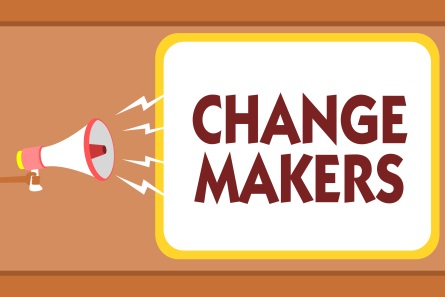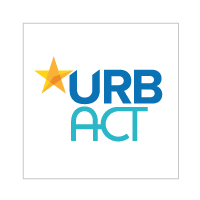Join URBACT at the EWRC this October!
Edited on
05 September 2019Register now to join the URBACT workshops during the European Week for Regions and Cities in Brussels from 7 to 10 October.

This year the Committee of the Regions and the DG Regional and Urban Policy organise the 17th European Week for Regions and Cities in Brussels from 7 to 10 October 2019. Destined to European, national, regional and local government officials and experts, more than 300 workshops will take place presenting good practices and solutions on issues related to urban and regional development.
During this week, URBACT will organise three workshops:
- How to improve governance and citizen engagement – learning from URBACT-UDN
On 8 October , 16.30-19.00
This session is part of a group of sessions organised within the framework of the Urban Development Network (UDN). Involving citizens and stakeholders in urban development is a key principle of the integrated approach. The current Cohesion Policy already promotes participatory approaches in urban areas, e.g. through community-led local development and URBACT. The experience of cities shows that although ‘participation’ is applied in a range of ways, cities are experimenting and achieving results with citizens. This lab will present different participation approaches that can work for you and will gather your ideas about how citizen engagement can strengthen urban strategies in 2021-2027 Cohesion Policy.
Code: 08PL588
Theme: A Europe Closer to Citizen
Partner/s: European Commission - DG REGIO, URBACT
Venue: Building SQUARE - Brussels Convention Centre, Room Hall 100.
Address: Mont des Arts, 1000 Brussels
Capacity of the room: 144 people
- Fighting food waste while boosting local economic activity
On 10 October 2019, 09:15 - 10:45
Based on resea rch and practices on the ground, representatives from the ESPON, INTERACT, Interreg Europe and URBACT programmes will present how local and regional authorities can turn food waste from public institutions, businesses and households into a resource for the whole society. Through interactive and participatory techniques, this session will make participants reflect on their local situation and on the margin of manoeuver they have to (better) use food waste so as to tackle economic, environmental and social challenges.
rch and practices on the ground, representatives from the ESPON, INTERACT, Interreg Europe and URBACT programmes will present how local and regional authorities can turn food waste from public institutions, businesses and households into a resource for the whole society. Through interactive and participatory techniques, this session will make participants reflect on their local situation and on the margin of manoeuver they have to (better) use food waste so as to tackle economic, environmental and social challenges.
Code: 10PL434
Theme: A greener Europe
Partner/s: ESPON EGTC, URBACT, INTERACT, INTERREG Europe
Venue: Building SQUARE - Brussels Convention Centre, Room 410 (circle 4).
Address: Mont des Arts, 1000 Brussels
Capacity of the room: 72 people
- How to engage local stakeholders in policy and decision-making (For regional and local politicians under 40 years-old)
On 10 October 2019, 11:30 - 13:00
This participatory lab aims to build the skills and capacities of young elected politicians through the successful design and implementation of local policies or strategies. The session will focus on how local leaders can engage with different local actors and citizens to come up with a shared and integrated strategy and actions for their territory. After using URBACT-tested tools and methods participants should feel more confident in applying them in their local contexts.
Code: 10PL477
Theme: The Future of the EU and the roles of the Regions and Cities
Partner/s: URBACT
Venue: Building CoR - JDE building, Room Atrium 6.
Address: Rue Belliard 101, 1040 Brussels
Capacity of the room: 100 people
In addition, URBACT speakers will be present in the following workshops:
- UDN - How will the EU support Sustainable Urban Development in 2021-2027 Cohesion Policy?
On 8 October 2019, 11:30 - 13:00
This session is the introduction to a group of sessions organised within the framework of the Urban Development Network (UDN). The objective is to gather urban practitioners and Managing Authorities to present and exchange on the elements of Sustainable Urban Development in 2021-2027 Cohesion Policy, such as Policy Objective 5 ‘Europe Closer to Citizens’ and the European Urban Initiative. The session will include a speech by a high-level representative of Directorate General for Regional and Urban Policy, followed by panel discussions with high-level representatives from the European Committee of the Regions, the Joint Research Center, the Organisation for Economic Co-operation and Development, EUROCITIES, the Council of European Municipalities and Regions, URBACT and Urban Innovative Actions. The audience will also have a chance to participate to the discussions.
Code: 08WS581
Theme: A Europe Closer to Citizen
Partner/s: European Commission - DG REGIO
Venue: Building SQUARE - Brussels Convention Centre, Room Silver hall.
Address: Mont des Arts, 1000 Brussels
- How gender equal is your city and region? Where are women in Europe thriving?
On 8 October 2019, 14:30 - 16:00
Creating space for women’s voices, needs and capacities is a necessary step towards building better cities and regions. This session will showcase ways in which local authorities can bring about positive change through prioritising and mainstreaming gender-sensitive policymaking. Moreover it shows that a government has a higher quality when more women are involved and that GDP is higher in regions where women are less disadvantaged. A new EU regional gender equality monitor is presented that answers two questions: How big is the disadvantage of women relative to the men in their region? How much lower are the achievements of women relative to the region with the highest performing women? Examples from front runner cities documented in the URBACT Gender Equal Cities, such as Umeå, will inspire action. Finally a European perspective on gender inequalities at the national level will be given.
Code: 08WS649
Theme: A more socially integrated Europe
Partner/s: European Commission - DG JRC
Venue: Building SQUARE - Brussels Convention Centre, Room 313+315.
Address: Mont des Arts, 1000 Brussels
- UDN: How to enhance a strategic approach for sustainable urban development?
On 9 October 2019, 11:30 - 13:00
Participants of the session will gain knowledge and capacity on how to turn their plans into strategic, integrated, measurable and fundable strategies to tackle their local needs and challenges.
- Why is a strategic approach towards urban development important?
- The big picture about the design and implementation of integrated strategies with some examples and how we pass from good strategy to good implementation based on the Integrated Action Plans study of URBACT
- The Bonn case: how to localise Sustainable Development Goals?
- Some other city cases from URBACT: Waterford (IE) and Fundao (PT) what makes a strategy a good strategy?
Article 7 of ERDF on Sustainable Urban Development (current programming period 2014-2020), allowed cities to set-up integrated urban strategies that are now fully or partly funded by Structural Funds. For 2021-2027, the EC will continue this approach and improve it taking on board the lessons learned and good practices from the Urban Development Network, URBACT, JRC and other relevant stakeholders.
Code: 09WS573
Theme: A Europe Closer to Citizen
Partner/s: European Commission - DG REGIO
Venue: Building SQUARE - Brussels Convention Centre, Room 311+312.
Address: Mont des Arts, 1000 Brussels
- Partnership City Initiative - dialogue and cooperation
On 10 October 2019, 11:00 - 12:00
Partnership City Initiative is often called a Polish URBACT, as it was inspired by the effects of this European networking programme. The aim of this initiative is to support, from the national level, thematic networks of the cities, where cities themselves identify their most pertinent challenges and work on solutions and recommendations for improvement.
The Ministry of Investment and Economic Development provides organisational (e.g. organising meetings) and expert support for the networks. So far, 3 networks have been launched: air quality, urban mobility and revitalisation, with 34 cities involved. All cities, in addition to exchanging experiences, work on the so-called Urban Action Initiatives, which are documents containing specific solutions for previously identified challenges and/or local problems. The final result of the work of each network will be the Improvement Plan, which is a document containing a set of recommendations for conducting national policies related to the thematic area of a given network. The idea is the recommendations proposed by the cities are taken into consideration at national level and lead to policy changes, enabling better integration of urban policy. The pilot nature of the project of the first thematic networks allows us to state that the Partnership City Initiative is a simultaneous combination of initiatives at European Union level - Urban Agenda, URBACT.
Profiting from the “Urbact Methodology”, Poland has managed to spread these ways of working into 34 other towns and cities, increasing the capacity of a European level networking programme, to a lower national level.
PIM especially allows smaller towns and cities to profit from a sharp learning curve (they have often lost their administrative and/or economic roles and are looking for new ways of sustainable development).
Code: 10QA519
Theme: The Future of the EU and the roles of the Regions and Cities
Partner/s: Ministry of Investment and Economic Development
Venue: Building SQUARE - Brussels Convention Centre, Room 310 (circle 3).
Address: Mont des Arts, 1000 Brussels
To register to these workshops please create your EU login and select the sessions by clicking here.
Stay connected for updates on Twitter @URBACT @EU_Regional @EU_CoR and #EURegionsWeek
 Submitted by URBACT on
Submitted by URBACT on




